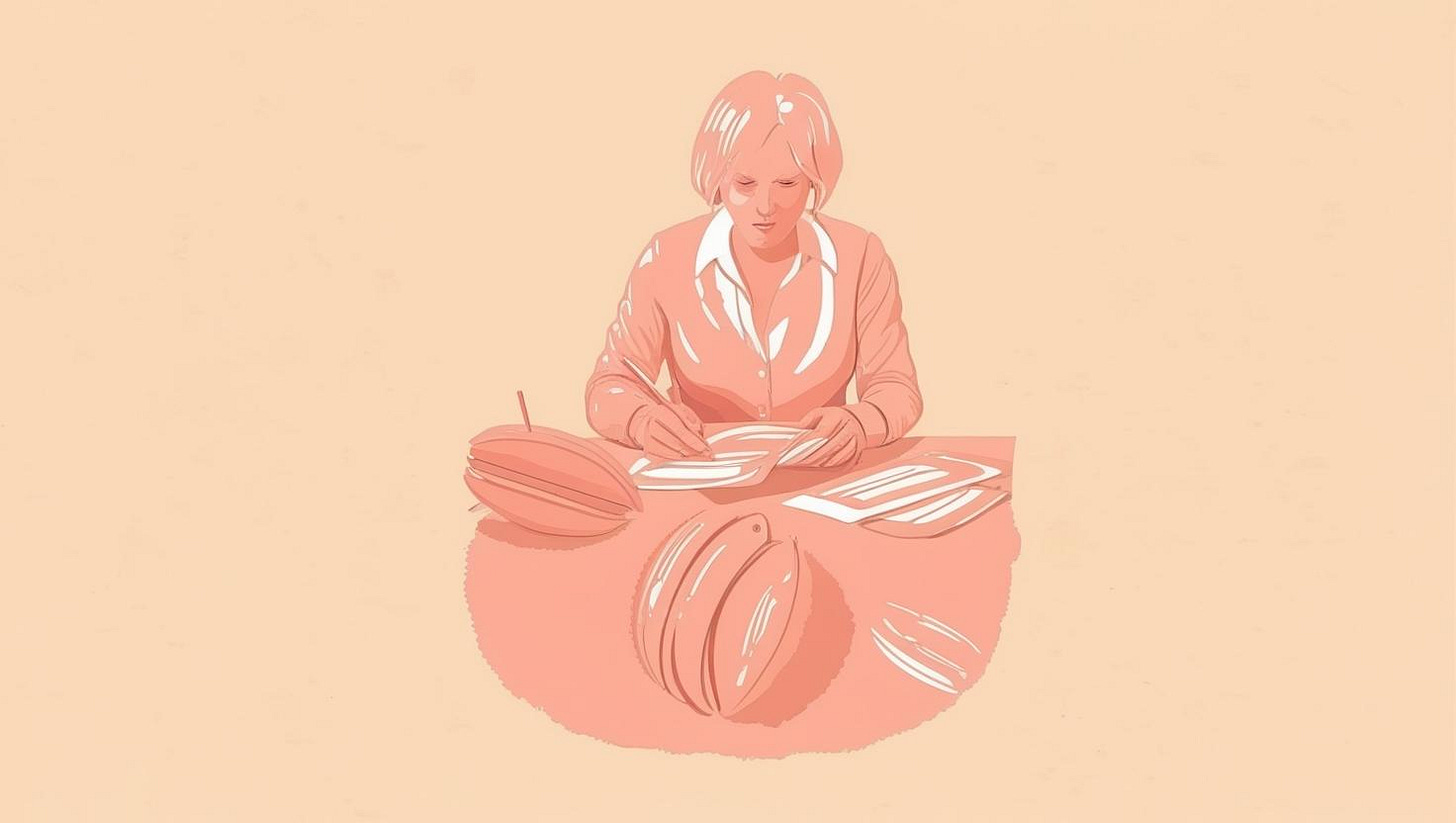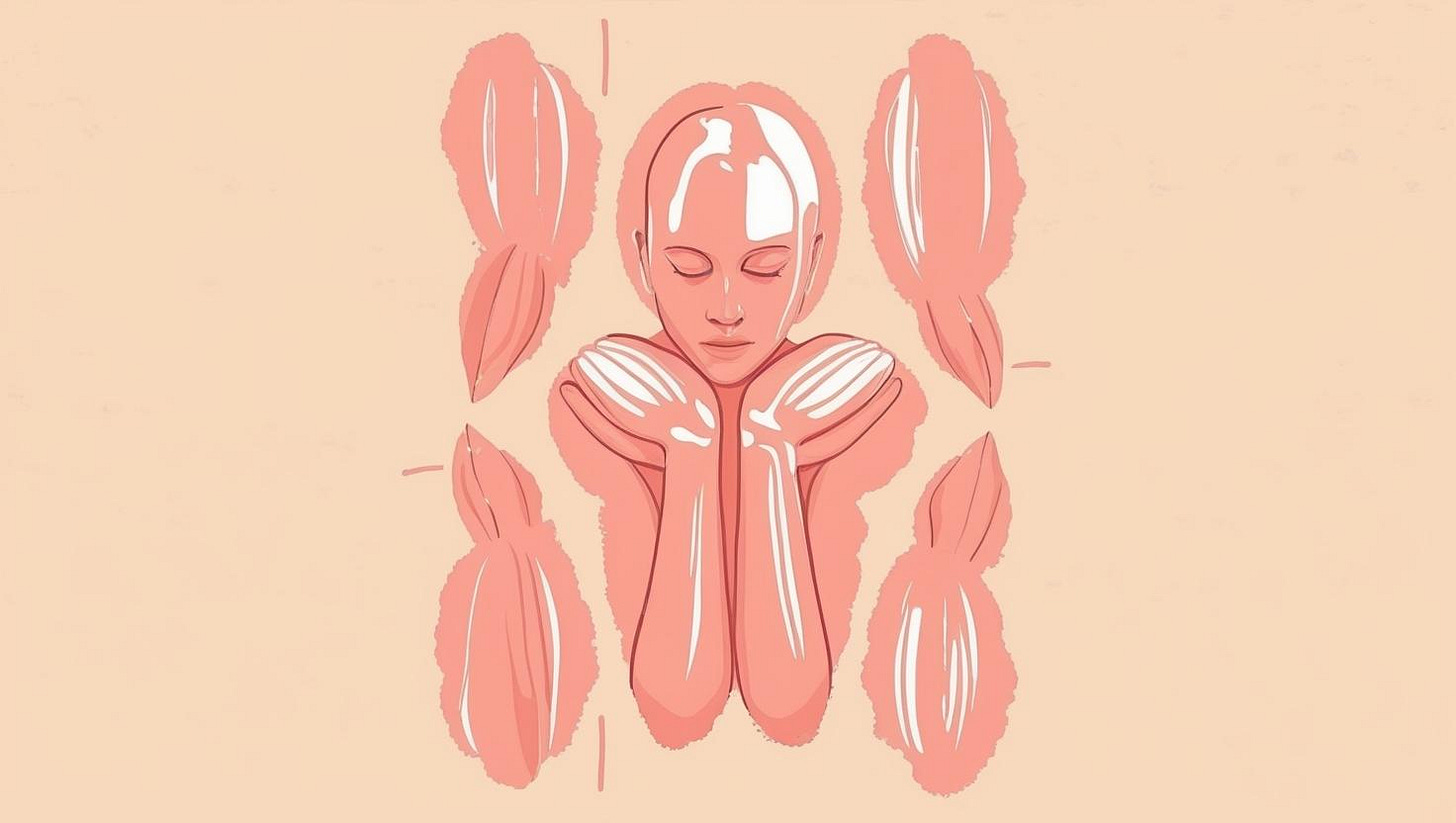If you’ve ever thought, “Why can’t I just get started?” or “I feel stuck or frozen” or even “My brain feels like sludge,” you’re not lazy or unmotivated—you’re likely dysregulated.
Many ADHD women don’t know they struggle with nervous system regulation, because they’ve been taught to label it as laziness, low motivation, or inconsistency. But what’s really going on is often a mismatch between what your brain and body need—and what the environment demands.
Let’s talk about what nervous system regulation is, why it’s more difficult for ADHD women, and how to begin supporting yourself with clarity, compassion, and power.
What Is Nervous System Regulation?
Nervous system regulation is your body’s ability to stay in a balanced state that supports calm, focus, and flexible thinking. This state—often called your "window of tolerance" or "just right" zone—helps you feel grounded, present, and capable.
That zone isn’t static. What works for relaxing on the couch might not help you meet a deadline. And for neurotypical people, the nervous system often self-regulates automatically. But for ADHD women, that regulation typically requires more intentional effort, environmental support, and self-awareness.
Why It’s Different for Neurodivergent Women
ADHD women often experience nervous system regulation differently due to a combination of sensory sensitivity, executive functioning challenges, and emotional intensity. These internal demands are compounded by external ones: fast-paced, overstimulating, and often judgmental environments that don’t accommodate how neurodivergent brains work.
On top of that, many ADHD women carry the weight of masking, trauma, or internalized shame, which can dull or disconnect them from their own bodily cues—making regulation even harder to access when it's most needed.
The “Just Right” Zone vs. Burnout or Shutdown
When you’re regulated, you may feel “in the zone”—focused, energized, and aligned. But it’s easy to get knocked out of that zone:
If your energy spikes too high, it can lead to overstimulation, restlessness, irritability, or even panic.
If your energy drops too low, you may hit a wall—brain fog, fatigue, freeze, or a shutdown that mimics depression.
These are expressions of nervous system dysregulation, and they are extremely common in ADHD women.
ADHD “Symptoms” That Are Often Signs of Dysregulation
Some ADHD challenges are actually signs that your nervous system is struggling to stay balanced:
Task paralysis
Losing words or forgetting what you were saying
Emotional flooding or going completely blank
Chronic procrastination (especially when overwhelmed or overtaxed)
What Can Help: The Flourish Pillars of Support
These seven core supports I teach in my groups that can help you regulate more effectively—by honoring, not fighting, your neurodivergent needs:
Self-Awareness: Noticing your state before you spiral
Self-Accommodation: Adjusting your space and routine to support your sensory and cognitive needs
Self-Trust: Affirming that your experience of overwhelm is valid, not exaggerated
Self-Care: Prioritizing your nervous system needs over productivity
Self-Compassion: Letting go of shame when you can’t “push through”
Self-Advocacy: Communicating what you need from others (quiet, breaks, boundaries)
Emotional Attunement: Listening to what your body is telling you—do I need movement, stillness, pressure, or connection?
How to Build a Self-Accommodation Plan
Regulation doesn’t require a total life overhaul—it starts with tuning in and making small, intentional shifts. Try these foundational steps:
Do Sensory Check-Ins
Pause throughout the day to ask: What am I feeling right now? Do I need more input—or less?Map Your Environment
Identify the spaces where you feel scattered, overstimulated, or shut down. What might help—noise reduction, softer lighting, a fidget, or clear transitions?Create a Regulation Toolkit
Keep comforting or energizing tools within reach: earplugs, weighted lap pads, scent rollers, textured objects, stim toys, or grounding images.Practice Micro-Resets
Build in quick, low-effort resets throughout your day: stretch, name five things you see, place your hand on your heart, or say a calming affirmation.
Here’s a great video on Nervous System Regulation in Neurodivergent Clients that I recently came across.
I’m Kristen McClure, MSW, LCSW—a therapist with 30 years of experience, a child and mental health advocate, and a neurodivergent-affirming coach. I run a therapy practice in Charlotte, NC, and have developed a comprehensive, neurodivergent-affirming program for ADHD and AuDHD women.
🔹 Learn more about the Flourish program: here
🔹 Join the waitlist for the next Flourish cohort: here
🔹 Join my free, affirming community for neurodivergent women: here
🔹 Are you a therapist and want to learn about the flourish model? I’m considering teaching this model and sharing the materials. sign up here
I also write four free newsletters on Substack, covering ADHD advocacy, neurodivergent children, and therapist topics.






